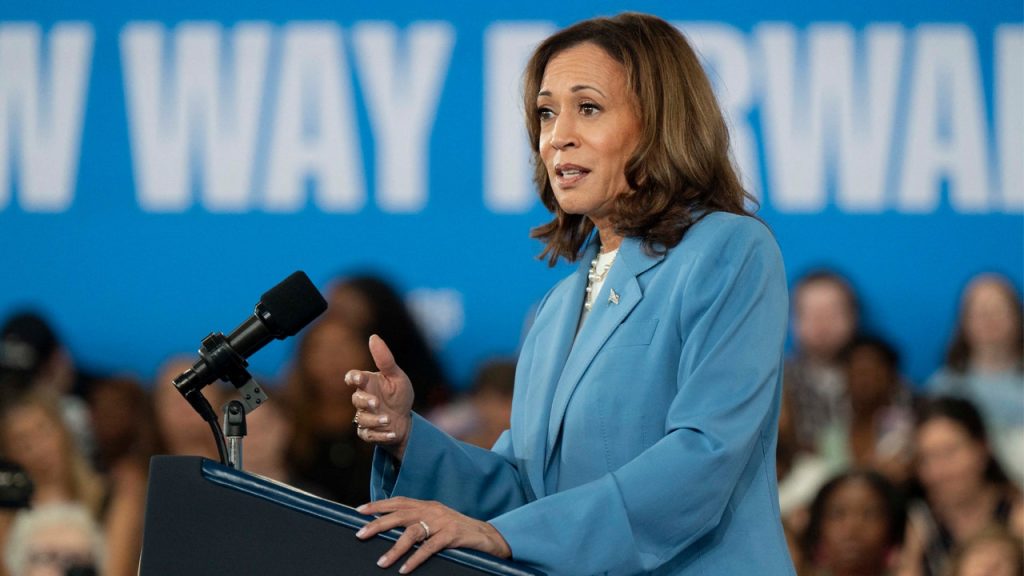During the Democratic National Convention, Vice President Kamala Harris proposed raising the corporate tax rate from 21% to 28% in order to put money back into the hands of working people and ensure that billionaires and big corporations pay their fair share. This move, if enacted, could potentially raise hundreds of billions of dollars in revenue. Harris is beginning to offer details on her governing plans if elected president, including expanding the child tax credit, easing homeownership costs, and lowering medical debt. This proposal would also signify a major rollback of the 2017 tax cuts implemented during former President Trump’s administration, which reduced the corporate tax rate from 35% to 21%.
President Trump, on the other hand, has pledged to further cut taxes if re-elected, boasting that he gave the “best tax cut in history” during his time in office. He also indicated an intention to use tariffs against competitors and allies by supporting legislation such as the “Trump Reciprocal Trade Act.” The Harris campaign criticized Trump’s proposed tariffs, arguing that they would primarily benefit the richest Americans at the expense of middle and working-class individuals. Portions of the Trump tax cuts are set to expire at the end of 2025, setting the stage for a significant debate over which components should be extended.
Harris’s proposal to raise the corporate tax rate aligns her with President Biden’s recent federal budget plan, which also calls for an increase to 28%. Harris, who replaced Biden as the Democrats’ 2024 presidential nominee, faces criticism from some Republicans who believe that raising the corporate tax rate would be detrimental to job creation and working-class Americans. Republican strategist Alex Castellanos argued that Harris’s policies, including the corporate tax hike, could potentially hurt companies that employ working people, ultimately leading to job losses.
The clash over tax policy underscores the differing visions of economic management between Democrats and Republicans as they campaign for the 2024 election. While Harris and Biden advocate for raising taxes on corporations and the wealthy to fund social programs and initiatives, Trump and his allies aim to continue cutting taxes and implementing tariffs to stimulate economic growth. Both sides are likely to use these economic proposals as key talking points to sway voters and secure support in the upcoming election.
As the campaign trail heats up, both parties are intensifying their efforts to promote their respective economic visions and policies. Harris’s proposal to raise the corporate tax rate is just one of many initiatives being put forth by the Democratic Party, while Trump focuses on highlighting his past tax cuts and aggressive trade policies. These divergent approaches to taxation and economic policy will feature prominently in the 2024 election, shaping the debate over how best to support working people, stimulate economic growth, and ensure a fair distribution of wealth.


